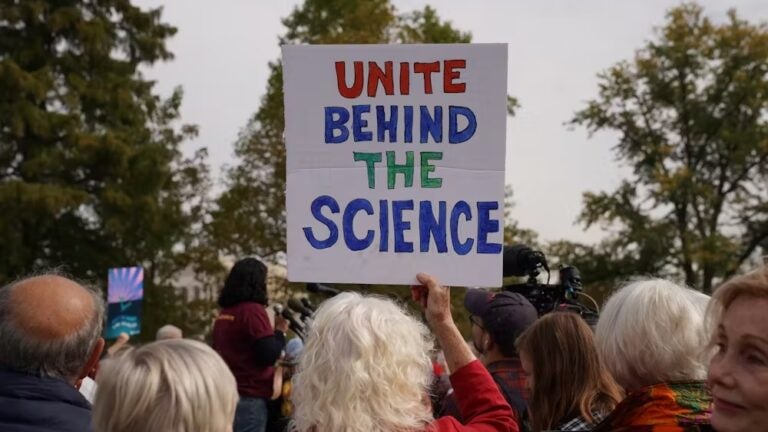
A new study authored by Wrigley Institute faculty affiliate Norbert Schwarz suggests that to combat repetitive misinformation, climate endorsers should come back to the consensus backed by science. (Phil Pasquini/Shutterstock)
New research finds that repetition increases belief in climate misinformation, even for climate science endorsers
Original story by Yangxueqing Mary Jiang, Eryn Newman, Kate Reynolds, and Norbert Schwarz.
New climate communication research has found repeated exposure to climate-skeptic claims increases their perception as truth, even for climate science endorsers.
The study, co-authored by Wrigley Institute faculty affiliate Norbert Schwarz and colleagues from the Australian National University and the University of Melbourne, tested the influence of repetition on the perceived truth of pro- and counter-attitudinal climate claims in two experiments with participants who were mostly climate science endorsers. Participants saw some claims just once, while others were repeated. The study found that a single repetition was enough to increase the perceived truth of all claims–including sceptic claims–even for those attitudes align with climate science, due to a phenomenon called the illusory truth effect.
These results highlight important implications for climate science communication. Many who receive information from social media and other online news outlets may encounter falsehoods that are shared repeatedly, and are more likely to come to accept them. The researchers, however, present one solution: return to the scientific consensus.
“You might think intelligence and careful thinking can have a protective effect. But the broader body of research on illusory truth has found being smarter or more rational is no protection against repetition.”
Read the full story on The Conversation >>
Read the full study in PLOS One >>
In the News:
What seems most true: Information that confirms your beliefs…or information repeated over and over?, Anthropocene, August 20, 2024